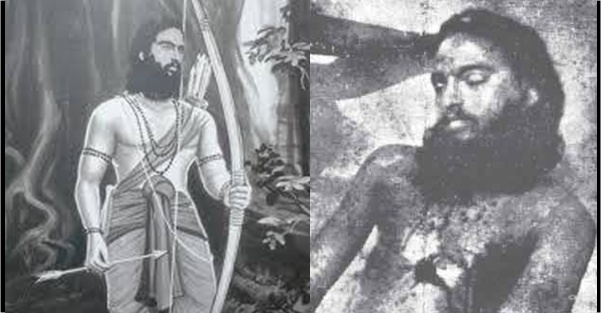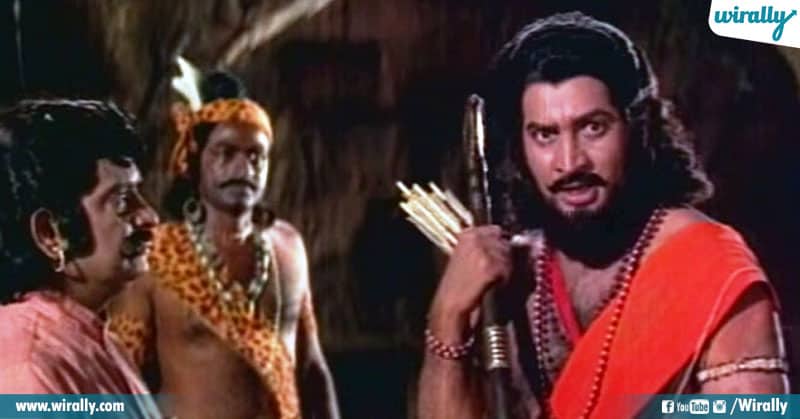The colonial British would pass the oppressive Madras Forest Act of 1882 preventing the tribals from even cutting their own trees for firewood. Under crushing poverty, they could be violently exploited as laborers, including their women, notably by Bastian, the Tahsildar of Chintappali divison, now in Vishakapatnam district. Sporadic revolts were ruthlessly crushed. Alcoholism became a problem.
Alluri Sitarama Raju was born on July 4, fitting the day of the US independence from the British. Even when young, he could do Dhyana (meditation) for long hours. He would do Devi Puja. He would learn Samskritam, Ayurveda & martial arts.
He recognized the problems of the tribal society. First, he made everyone give up alcohol overnight. Then, he organized a rebellion. But they had no arms. Sitarama planned attacks on British police stations & captured their arms & ammunition. Then, using these arms, more successful attacks on even fortified police stations got even more arms & ammunition. The British sent multiple expeditions to battle Sitarama. All of them were defeated.
An alarmed British now started using heavy artillery like cannons. Locals were tortured to reveal whereabouts. They managed to capture Sitarama's trusted lieutenant Mallu Dora. Dora would be imprisoned & tortured in Andaman's infamous Kalapani, which housed Savarkar.
The frustrated British unleashed terror, first starving the tribals followed by torture & killings. A genocide threat was issued unless Sitarama surrendered. Sitarama would finally succumb to these tactics. He surrendered to the British. Upon surrender, the British would shoot him dead, treacherously breaking their own law of amnesty on surrender.
The Indian National Congress had opposed Sitarama when he was alive, since it favored a non-violent struggle, with articles in the Swatantra & Krishna Patrika. After his death, the magazines praised him.
In contrast, an inspired Subash Chandra Bose had this to say. “I consider it my privilege to praise the services of Alluri Sitarama Raju to the national movement, the youth of India should see him as an inspiration”.
He is remembered in Telugu folklore with statues & movies honoring him. A postage stamp was issued in his honor.
References:






No comments:
Post a Comment